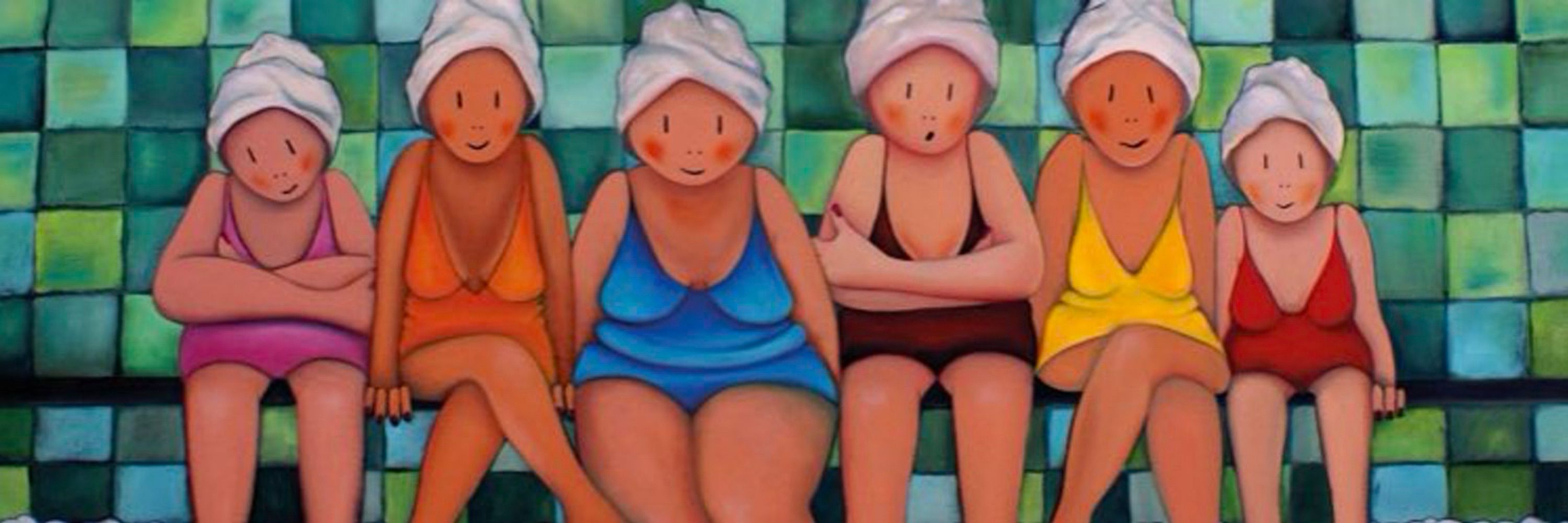
with @bpomie.bsky.social @benedek.bsky.social and myself at the ESPP conference in Warsaw. So much to think about !

with @bpomie.bsky.social @benedek.bsky.social and myself at the ESPP conference in Warsaw. So much to think about !
Tempting to think that this reveals where social perception begins in the brain 🧠
@ecvp.bsky.social

Tempting to think that this reveals where social perception begins in the brain 🧠
@ecvp.bsky.social
If you are around and want to continue the discussion, we are here for this ☺️
Stay tuned for more talk from our lab in the upcoming days!
@ecvp.bsky.social @isc-mj.bsky.social

If you are around and want to continue the discussion, we are here for this ☺️
Stay tuned for more talk from our lab in the upcoming days!
@ecvp.bsky.social @isc-mj.bsky.social
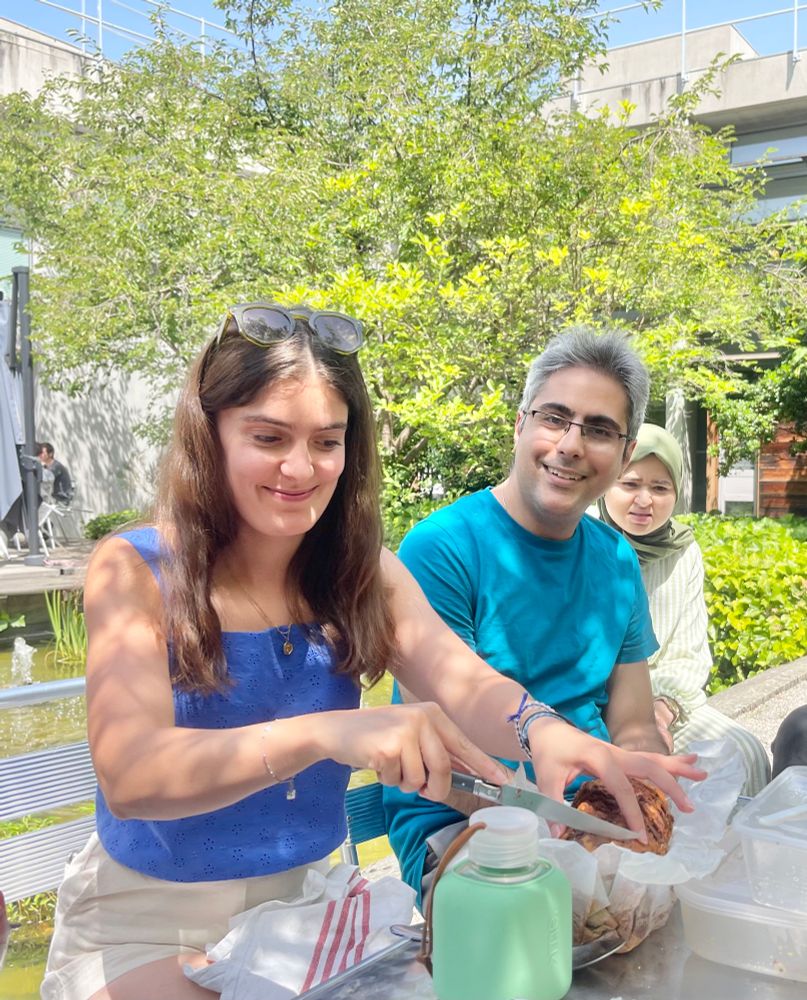
• Key regions of the social-interaction network (pSTS, EVA and MT) show selectivity to social interaction also when depicted in static images. Thus, motion is not necessary to trigger the social interaction network
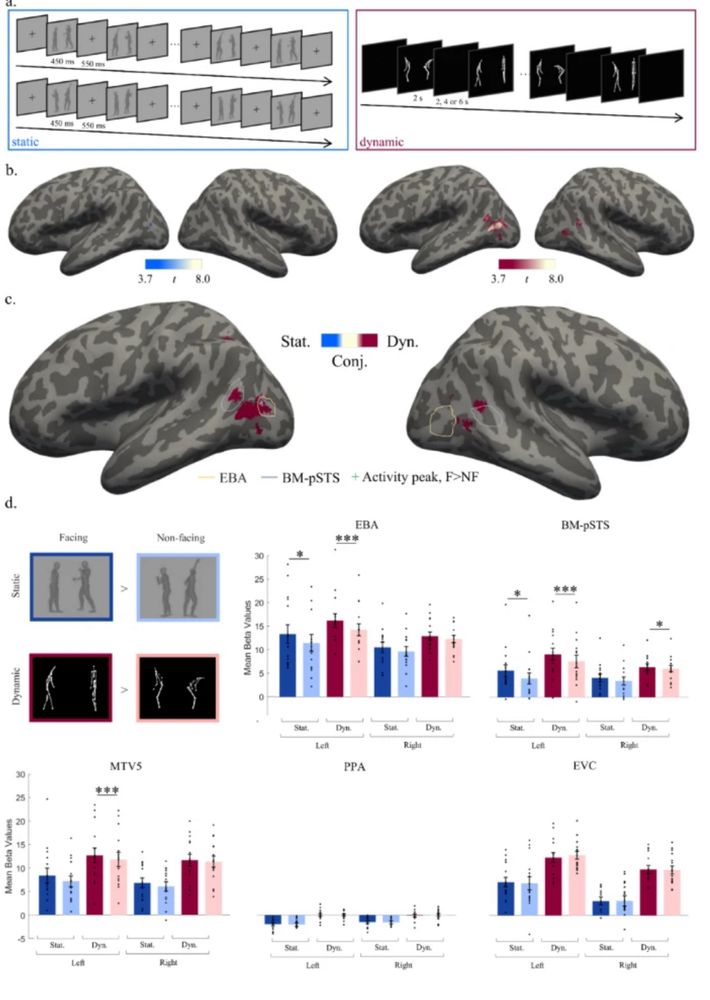
• Key regions of the social-interaction network (pSTS, EVA and MT) show selectivity to social interaction also when depicted in static images. Thus, motion is not necessary to trigger the social interaction network
Perception of motion and of social interactions are two processes that happen to be localized around the same brain anatomy: lateral occipitotemporal areas. Is motion necessary to see social interactions network?
link.springer.com/article/10.1...
@cnrs.fr @babylyon.bsky.social
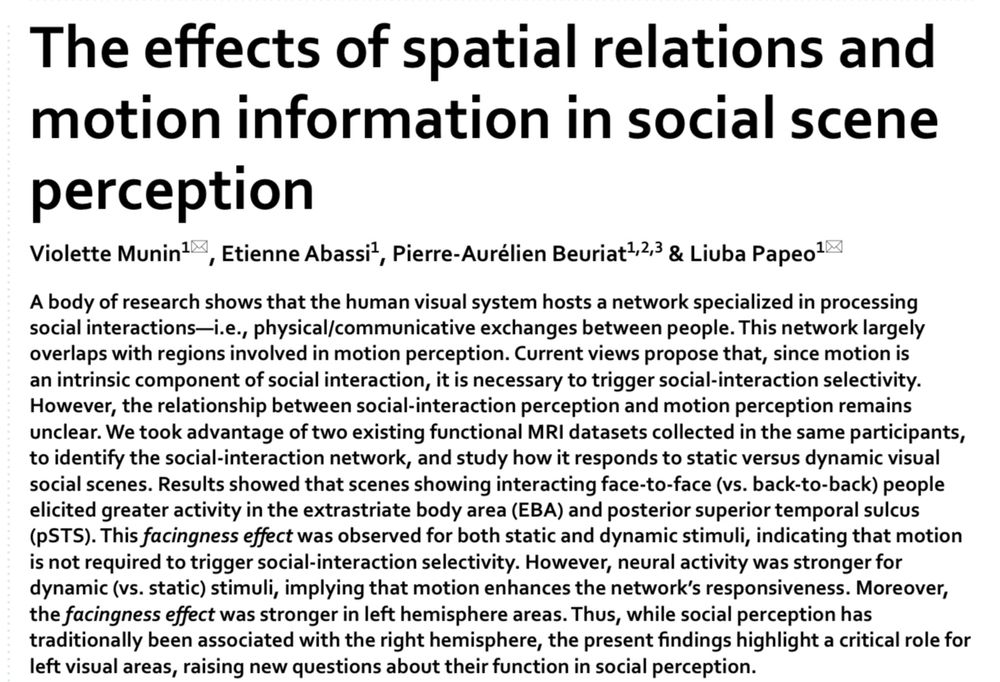
Perception of motion and of social interactions are two processes that happen to be localized around the same brain anatomy: lateral occipitotemporal areas. Is motion necessary to see social interactions network?
link.springer.com/article/10.1...
@cnrs.fr @babylyon.bsky.social
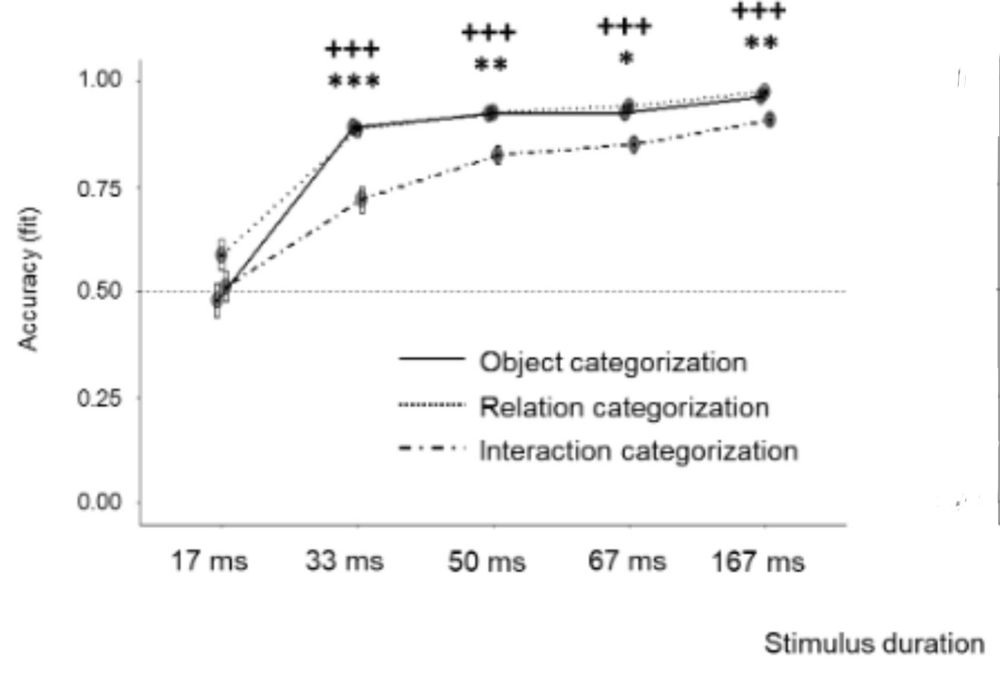
• There are people (vs other objects)
• They are facing vs facing away from each other
• They are dancing vs fighting
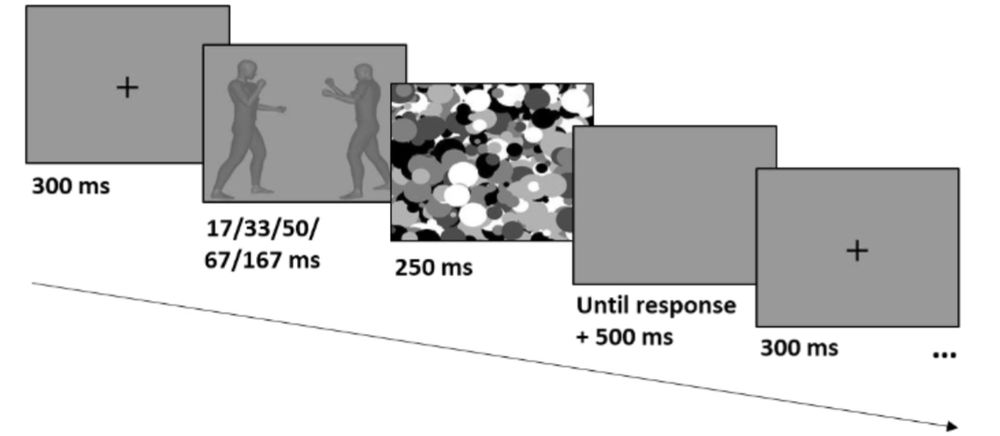
• There are people (vs other objects)
• They are facing vs facing away from each other
• They are dancing vs fighting
How do we represent relations between things? And how does it relate to object and action recognition?
New paper out osf.io/preprints/ps...
@mmellon.bsky.social
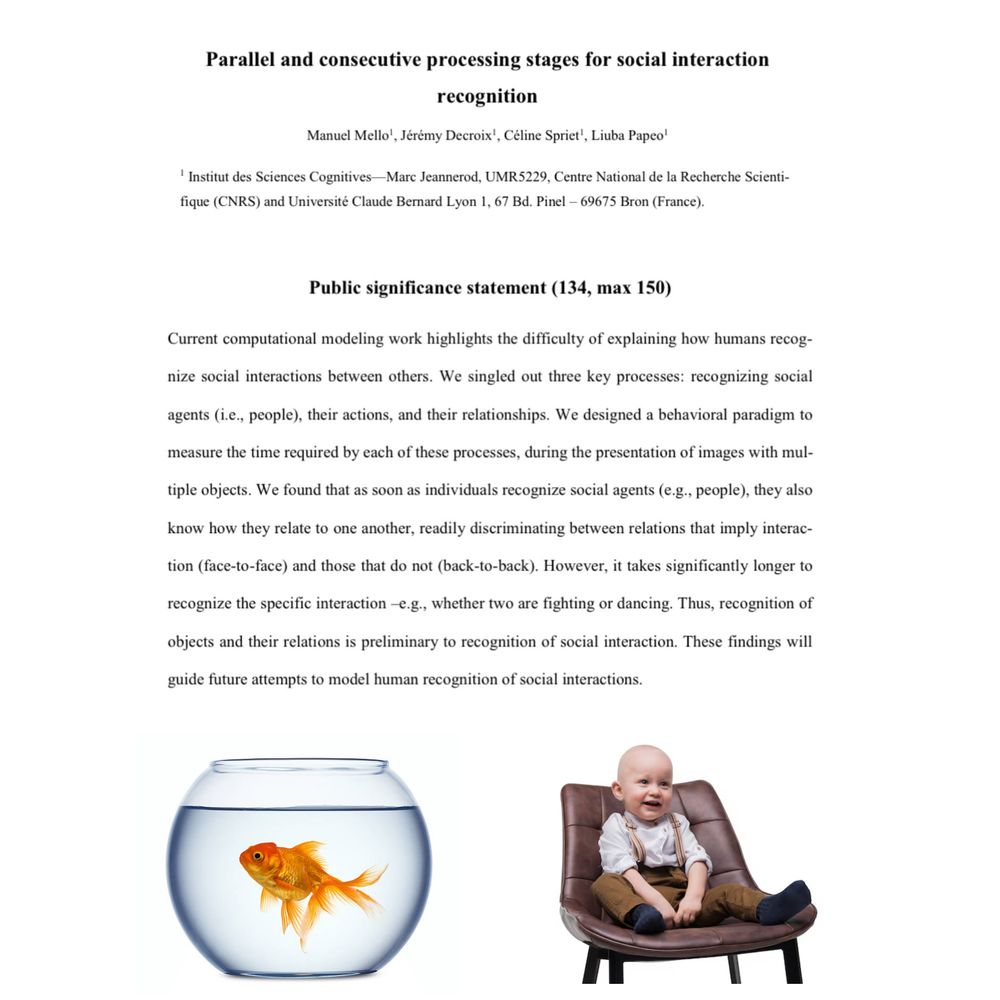
How do we represent relations between things? And how does it relate to object and action recognition?
New paper out osf.io/preprints/ps...
@mmellon.bsky.social

• There are people (vs other objects)
• They are facing vs facing away from each other
• They are dancing vs fighting

• There are people (vs other objects)
• They are facing vs facing away from each other
• They are dancing vs fighting
Stay totally tuned!!! 😎
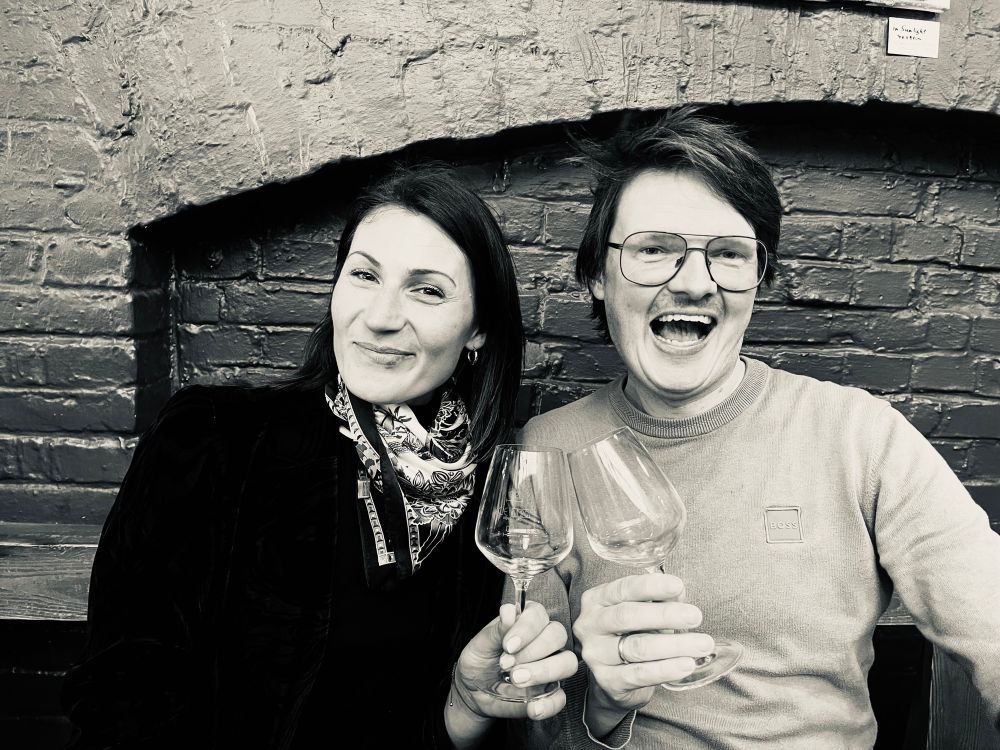
Stay totally tuned!!! 😎
@jlugiessen.bsky.social @unimarburg.bsky.social
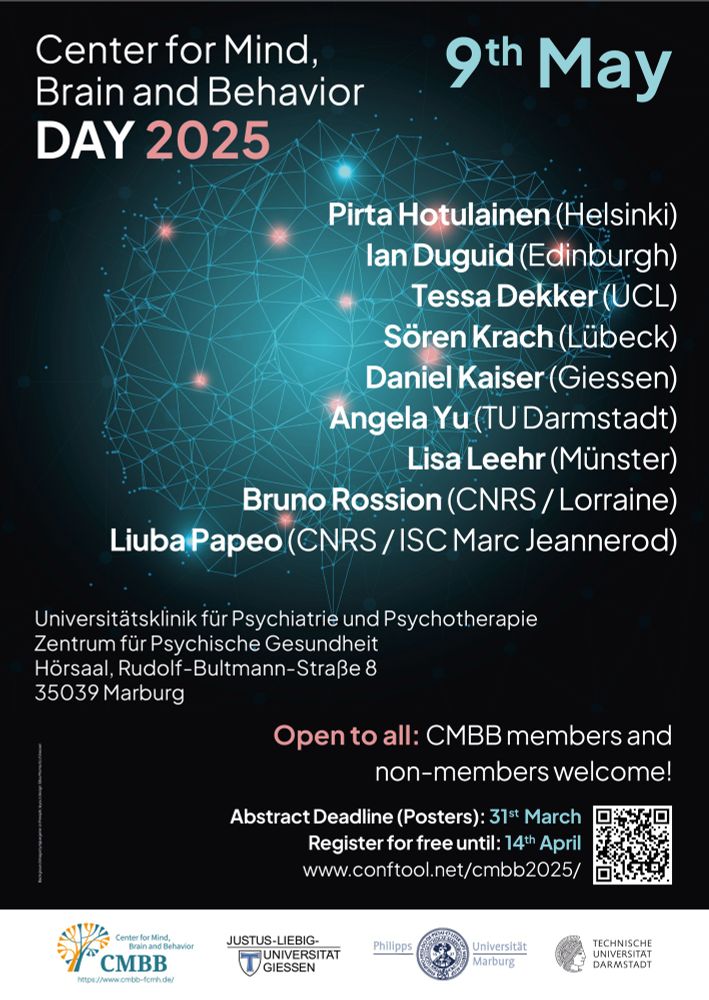
@jlugiessen.bsky.social @unimarburg.bsky.social


People care about science.
Scientists should be activists in building a society based on knowledge and scientific culture @babylyon.bsky.social @cnrs.fr @cnrs.fr

People care about science.
Scientists should be activists in building a society based on knowledge and scientific culture @babylyon.bsky.social @cnrs.fr @cnrs.fr
@cnrs.fr @universitelyon.bsky.social

@cnrs.fr @universitelyon.bsky.social
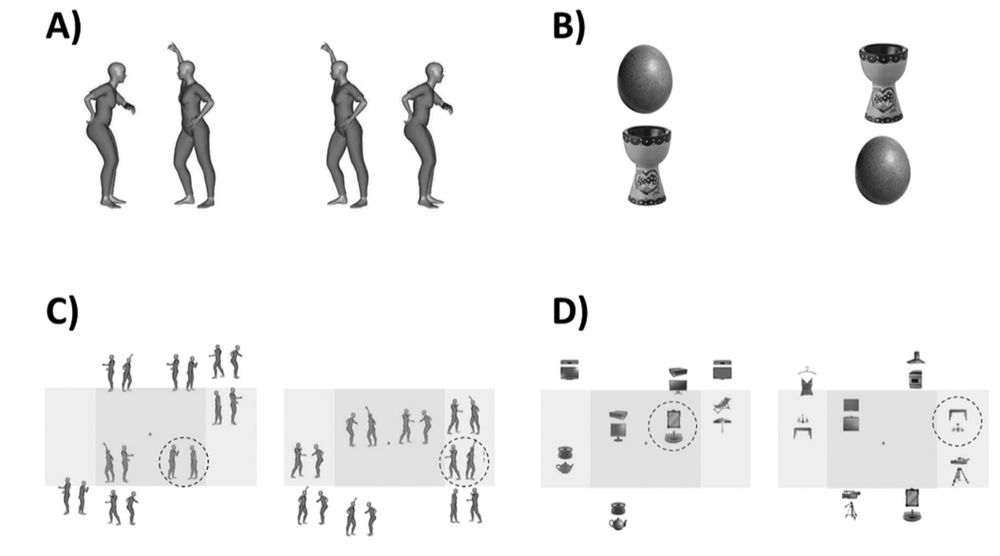
We touch base with research on scene perception and outline the advances and open questions raised by the perspective that processing relations (between objects) is a central function of visual perception.
osf.io/preprints/ps...
@cnrs.bsky.social @udelaware.bsky.social

We touch base with research on scene perception and outline the advances and open questions raised by the perspective that processing relations (between objects) is a central function of visual perception.
osf.io/preprints/ps...
@cnrs.bsky.social @udelaware.bsky.social
It takes 2% of body weight but demands 20% of body energy.
This’s because we have an immense cognitive capacity that defines what we are.
My take: We’ve no excuses for being the id$¥s that we often are!

It takes 2% of body weight but demands 20% of body energy.
This’s because we have an immense cognitive capacity that defines what we are.
My take: We’ve no excuses for being the id$¥s that we often are!
Thank you @britishacademy.bsky.social for working with the @ercgrantees.bsky.social with the common goal to promote and protect the freedom of scientific research

Thank you @britishacademy.bsky.social for working with the @ercgrantees.bsky.social with the common goal to promote and protect the freedom of scientific research
The lecture will be livestreamed via vimeo.com/event/4850726

The lecture will be livestreamed via vimeo.com/event/4850726

Soon out in JEP:Gen
osf.io/3w59v/

Soon out in JEP:Gen
osf.io/3w59v/


